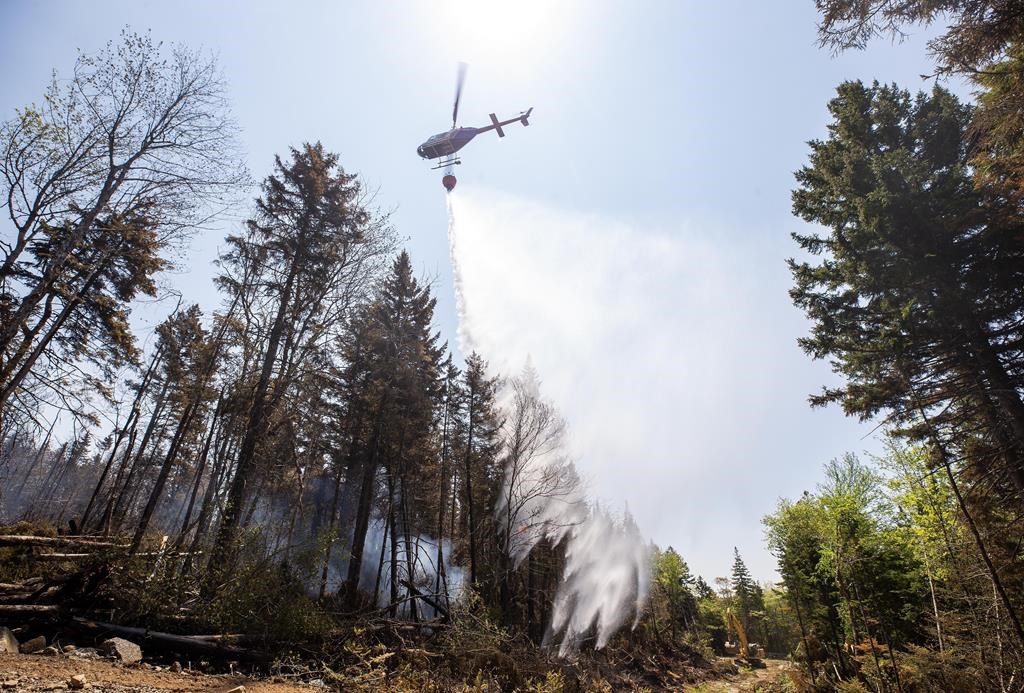After enduring the most severe wildfire season on record, Nova Scotia will see its current fleet of helicopter water bombers replaced with four new aircraft.

In a media release on Friday, the province’s Natural Resources and Renewables department said it will be using federal funding to make the purchase.
“Being prepared for emergencies such as wildfires is critical to protecting communities and Nova Scotians. That’s why we’re considering all options and are upgrading our fleet of helicopters to ensure we can manage wildfires in the future,” said Tory Rushton, Minister of Natural Resources and Renewables.
The province has already begun the replacement process and is expected to have an entirely new fleet over the next four years. The price tag for the new aircraft remains to be announced, as the release said the cost is still “subject to negotiation with the supplier.”
“While fighting wildfires, helicopters can scoop and dump water on a faster rotation than fixed-wing aircraft, dropping a higher volume in total on a wildfire,” the release said, adding that the current waitlist to buy a fixed-wing aircraft can be up to 10 years.

Get daily National news
“They can also draw water from smaller water bodies, making good use of Nova Scotia’s many lakes and ponds.”
The release noted that the province’s helicopter fleet expands beyond combatting wildfires — as it has assisted with transporting people and equipment during emergencies, search and rescue efforts, and aerial surveillance for several departments.
Nova Scotia’s current fleet of helicopters was purchased in 2016.
The province has arrangements with other provinces to share their fixed-wing water bombers when needed, but it does not own a fixed-wing aircraft to fight fires.
Rushton said in an interview Friday that discussions about the possible purchase of a firefighting airplane are still underway as his officials review the 2023 wildfire season — the most severe on record.
“We’re having a high-level conversation right now, with the debriefing of our wildfire season that’s taking place,” he said.
The province says the current fleet of helicopters can respond to any location in the province within 90 minutes from their base in Shubenacadie.
During wildfire season, the aircraft are placed around the province based on the fire risks, and this can reduce response time to about 30 minutes.
The province is expected to produce a report on lessons learned from the fires before the spring.
— with files from the Canadian Press
- Public sector unions say nearly 10K employees got layoff notices this week
- ‘No standing back’ in Afghanistan, minister says after Trump NATO comments
- Bessent says an independent Alberta would be ‘natural partner’ for U.S.
- Canada’s sovereignty, economy key topics of Liberal cabinet retreat: ministers








Comments